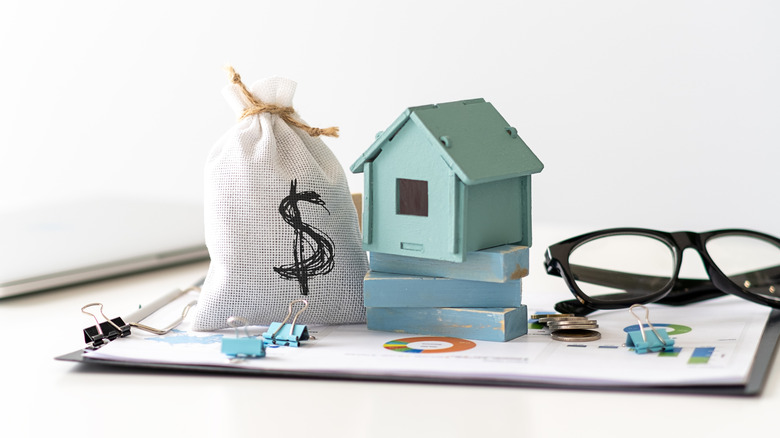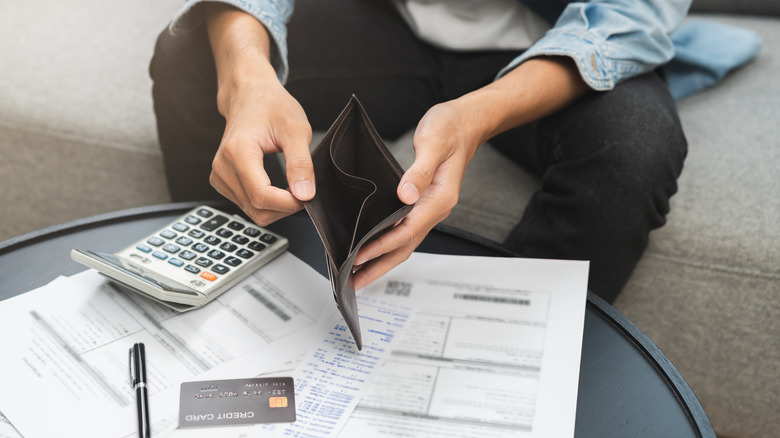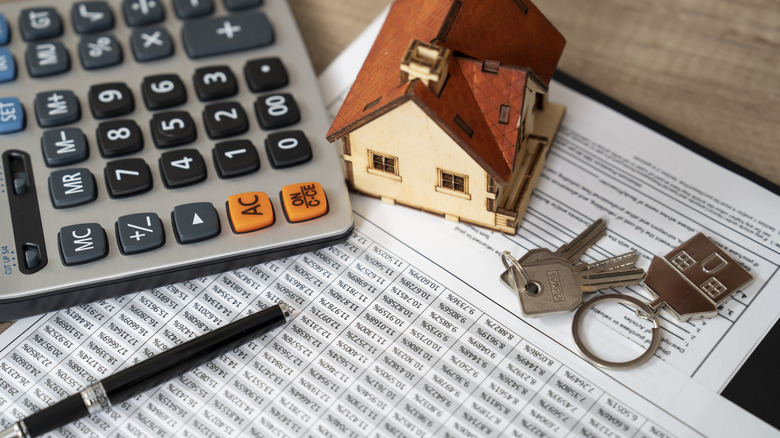You've Been Warned: Don't Overpay Your Mortgage If You Have This Type Of Debt
If you have extra funds on hand, you might have considered paying off your mortgage sooner than you originally intended to. Overpaying could mean saving on the interest amount in the long run, and it can take you closer to the day you own your home and become mortgage-free, but is it worth it? With home prices climbing, the average mortgage debt has increased across all states. According to Experian, the average U.S. mortgage debt balance was $252,505 in 2024.
Mortgage overpayment is when you pay more than the minimum monthly repayment amount. It could be an occasional lump sum or a one-off overpayment. However, it isn't always as easy as it sounds. Before you pay any additional amount on your mortgage to reduce the interest and outstanding balance, you need to consider a few things to ensure that you are putting the extra cash to its best use.
For starters, your lender might impose charges for overpaying, known as a prepayment penalty, for paying all or part of your mortgage off early. This penalty is more likely to apply if you pay your entire mortgage amount at once, as opposed to paying a little extra at a time. As always, check with your lender regarding their penalty policy. However, before you consider mortgage overpayment, you should prioritize your high interest debt first.
Consider your high interest debts
If you have other expensive debts like personal loans or credit cards, it could make more sense to pay these off before overpaying on your mortgage. Compare the interest rates of all of your current debts and pay off the ones with higher rates. This can be especially relevant in light of recent credit card interest rate increases. As per NerdWallet, the U.S. average 30-year fixed mortgage interest rate was 7.05%, as of mid-May 2025. However, according to Business Insider, the average interest rate on personal loans for the same period was 20.75% and, per LendingTree, the average credit card interest rate for mid-May 2025 was as high as 24.28%.
Personal loans and credit cards have a higher rate since they represent unsecured debt. Such loans are not backed by physical collateral like a home or a car. Hence, they're inherently riskier for lenders. If the borrower defaults, the lender has to initiate the collections process in order to try and recoup any outstanding amount. Thus, if you find you have additional money on hand, it could be better to use certain debt pay-off strategies like paying off your highest interest loans first, rather than paying extra on your mortgage. This is also known as the debt avalanche method. Since these kinds of debts tend to become more expensive in the long run, prioritizing your high-interest loans can allow you to save money long-term.
Don't overstretch yourself
If you are free of high-interest debt, it could be worth considering some additional options for that extra cash. Before considering mortgage overpayment, ensure you have set aside an emergency fund to cover any unexpected expenses like a medical emergency or car repairs. This fund will not only be useful during an emergency but can also offer a sense of security in case of sudden job loss. A good rule of thumb is to have at least three to six months' worth of your expenses set aside in an account.
You might also want to weigh different investment options like money market funds, certificates of deposit, equities, and corporate bonds. If an investment pays a higher rate of interest than the rate you're paying on your mortgage, then putting the money in that investment could be a more ideal way to earn long-term. However, remember to check the specifics of any anticipated returns, plus the risk and fees associated with these investments ahead of time, in order to make an educated decision.


